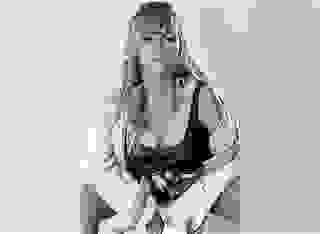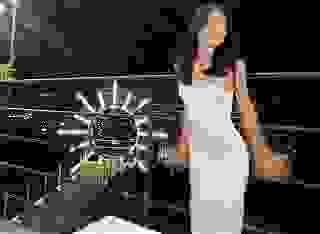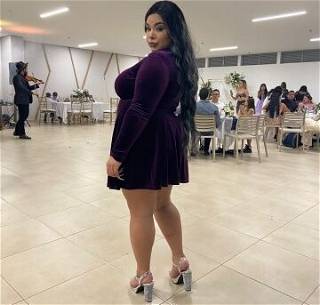Note: You can change font size, font face, and turn on dark mode by clicking the "A" icon tab in the Story Info Box.
You can temporarily switch back to a Classic Literotica® experience during our ongoing public Beta testing. Please consider leaving feedback on issues you experience or suggest improvements.
Click hereAfter Parker settled the bill, he gave Mom a kiss then sent her on her way back to her office. When she was a half-block down the street, he pulled me aside.
"Crystal, I am a little worried about you," Parker said. "Something's bothering you, I can tell. You've been very emotional today, and a little spacy, and that's so unlike you. Is everything all right?"
"I'm just under a lot of stress right now, Dad," I said, then I caught myself. I'd called him Dad, casually, without even thinking about it.
And I realized that he was my dad. Not my real dad, of course, but he was the man who had helped Mom raise me in this new reality, and that made him Dad.
"Well, your mom noticed it, too," he said. "She's concerned too. I know she wishes you and Graham would start considering a more serious relationship. I don't have to tell you how she feels about that. But we both know that you're an adult and that we can't tell you how to live your life. All we can do is love you, and be there if you ever need us. And Crystal, don't hesitate to call."
"Thanks, Dad," I said again. "Sometimes I guess I forget about what she went through with me, and that affects the way she thinks."
"Oh, she's a remarkable woman, your mother," he said. "I don't think I could have done what she did at her age. It's funny, though. I'd never heard the story about the mysterious woman who gave her hope when she was pregnant with you. Had you?"
"No, no I hadn't," I said.
"Oh well, gotta run," Parker said. "Even semi-retired, I get the work piled on. See you tomorrow?"
"Sure, Dad, I'll see you tomorrow," I said. "Love you.
"Love you too," he said and gave me a hug.
I got in my car, a feeling of panic growing. Was this all just an illusion, a result of Graham's time machine? Suddenly, I needed to get home, needed to talk straight with Graham. I'd changed history, changed it profoundly, and all of a sudden, I was scared.
I managed to make it back to my house without incident. I pulled into the driveway and just sat there for a few seconds shaking. Then I went inside.
Graham was just sitting at kitchen table looking at a magazine, which he put down when I came in.
"How was lunch?" he said, with a weird little half-smile on his face.
"It was ... different," I said hesitantly.
"I can imagine," he said, fixing me with a disconcerting stare and the same enigmatic smile. "I guess it goes without saying that you didn't stay on the bench at Palmer's when you went back, did you."
"Graham, I'm sorry," I said. "She was literally the first person I ran into, and she looked so miserable, so sad. But I honestly wasn't going to do anything until a carload of punks drove by and called her a bunch of names. It really pissed me off, so I yelled at them, told them to fuck off. Then we talked. That's all I did, just talked with her."
"That's it; just talked," Graham said. "Nothing else."
"I walked with her to her house," I said. "And Gram – her mother – gave me a glass of water. That's it. God, you don't know how hard it was to not do anything when Robby drove up, knowing he was going to die in a few days. But I didn't. I let that happen."
And I broke down and cried then. The whole experience had unnerved me so, coupled with some delayed grief over the death of someone I'd never met.
Graham stood up and gathered me in his arms, soothing me. He has his faults, but one of the things I love about him is his compassionate nature. He knows how to comfort me. When he got me calmed down, he gently steered me to a kitchen chair and set some papers in front of me.
"I'm going to walk across the street and check out the new supermarket," he said with a puckish grin. "Read those printouts, then we'll talk."
He kissed me lightly, then headed out the front door. I looked at the sheets he'd set before me and began to read. I gasped as I saw the one on top. It was a copy of an archived story from the town's newspaper from about 18 months ago, titled, "Dynamic Duo," and it was about Parker and my mom.
Basically, it was about how they had impacted the area through their lives. I was astounded, to say the least.
It started out talking about Mom, how she'd been a 15-year-old single mother without much future. But after losing her brothers, she said she decided she wanted to make them proud of her.
"I wanted them to look down on me from heaven and know that I'd done right by their memory," she was quoted in the story.
So at the start of the spring semester in 1969, she'd sought to re-enroll at the high school, to resume her schooling. But the school had rejected her application, on nebulous moral grounds.
Undaunted, she'd found a lawyer in town named Tom Riley who agreed to handle her case pro bono, and they had filed suit against the school district.
She made the claim that the decision by the school district to bar her from returning to school violated her civil rights, that she was being discriminated against because she was female. Mr. Riley got her story out to the big-city media, and it made national news.
Faced with a storm of negative publicity, the school board backed down, and in January of 1970, she went back to the high school, resuming her sophomore year after two years away.
The experience had changed her. Where before she had been an underachiever in the classroom, now she was single-minded about her education. She said in the story that having a small child at home forced her to discipline herself and budget her time.
Two years later, when she graduated, it was with high honors, and when she walked across the stage to receive her diploma, she got a standing ovation.
Her experience in fighting for her legal rights had ignited a fire of passion for the law, and she went to the state university, completed a difficult pre-law curriculum in 3 1/2 years and went on to law school, where she graduated third in a class of 128.
During her last year of law school, she had meet a prosperous real estate agent named Parker Sullivan, who as it turned out was a scion of one of the wealthiest families in the state. But he was a self-made man, who had taken a small inheritance and turned it into a profitable company.
He was six years older than Monica, but they fell fast in love and were married in 1978, when Mom was 25 and he was 31.
I would have been 8 at the time, and as I sat there, I could feel a fog of memory in my mind, like I actually remembered her wedding.
After finishing law school, Mom and Parker made a pivotal decision. Mom had offers to work for firms in larger cities, and in the city where the university is located and where Parker's business was.
But Mom had one offer she felt she couldn't turn down, from Tom Riley back here. Mr. Riley had been her defender and her mentor, and she felt she owed it to him to come back. Parker said he was leery of moving here, because it had all the earmarks of a dying Rust Belt town.
After doing some digging around however, Parker found things to like about the area, such as a population that was used to hard work and plenty of available land, so he urged Mom to accept a job as a junior member of Riley and Matthews. Parker opened a branch of his company in town and he set about remaking the town.
At this point, the story focused more on Parker, and I learned about what a remarkable man he was.
The first thing he noted was the inefficient way the Johnstown factory was being run. So he talked his family into buying a sizable amount of the company's stock, then found his way onto the company's board of directors.
Within two years, he'd managed to force the plant's old guard out and replaced them with younger men and women who put through a major renovation of the plant. By 1985, the plant was turning a profit again. It's still up and doing well, by the way.
Meanwhile, Parker was quietly buying up farms in the area that, for whatever reason, were going under. He offered cash-strapped farmers top dollar for their land, and gained a reputation as a fair dealer when buying and selling real estate.
Dissatisfied with the cautious, conservative nature of the local government, he decided in 1989 to run for mayor on a platform of spurring economic development. The incumbent tried to paint Parker as an out-of-town shyster, but his record of success with the Johnstown company and a general desire among the electorate for change swept him into office.
Once in the mayor's office, Parker set about working to land the Toyota plant. He'd heard through the grapevine that Toyota was looking to build a large components plant in the United States, somewhere in the heartland.
Parker decided that our town had as much to offer as other towns that were vying for the automaker's contract, and he worked hard to get it. After being re-elected in 1993 – in a pretty close race – he doubled his efforts.
In 1995, after five years of negotiations, he stood on a stage in the state capitol with the governor and other high-ranking state officials to announce that the plant would be built here. It would bring 6,000 jobs by itself, and three times that number in everything that went with it.
It took another five years of construction before the plant was fully operational, but now it was centerpiece of our part of the state, and our town's population had quadrupled in just 15 years.
Parker stayed on as mayor through a third term, but in 1999, he had a minor heart attack and had bypass surgery. He'd been "semi-retired" since leaving office in 2002.
Of course, selling his land-holdings, to developers and Toyota, made him and Mom a fortune, which they had plowed back into the community in various charities and services.
Mom had made junior partner in 1984, and in 1991, Mr. Riley had invited her to buy into the firm as a full partner. Mr. Riley had retired not long afterward and had died in 1998. Mom had spoken at his memorial service, giving a tear-filled and heartfelt eulogy that credited him for what she had become.
Although Mr. Riley and Mr. Matthews were both now passed on, Mom had kept their names on the firm in their memory. But it was now her firm, completely, and she had become famous for taking on indigent cases, lost causes and any other case that tweaked her social conscience.
I finished the article and just sat back stunned. One sentence, one little word of hope, had changed a lost, frightened little girl into a strong, confident woman and a decrepit, dying little town into an economic dynamo.
The rest of the documents Graham had laid out for me were pretty much in the same vein. One I saw was a sports article about Billy Sullivan being named Most Valuable Player in his conference as a basketball player for a small college. Another was an announcement of his wedding to one Annie Powell two years ago, and my name turned up as one of the bridesmaids.
Just then, Graham came back with several bags full of groceries.
"You need to check this place out," he gushed. "They've got the best meat department I've ever seen. Good-looking steaks at a decent price."
"I'm sure it's nice," I said softly.
"So, what do you think of the Crystal Effect?" he said, nodding in the direction of the articles I'd just finished reading.
We had talked a lot about the so-called Butterfly Effect, based on a sci-fi story where a man went back in time, accidentally killed a butterfly, and from that one act, killed all the beauty in the future world. Now, here was Graham talking about the effects of my return to 1968 and the changes they had wrought
"I don't know what to say," I said.
"I want to show you something," Graham said, and he led me over to the trash bin. He lifted the top and I gasped when I saw the pieces of his time device. It appeared that he'd taken a mallet and smashed it into very small pieces.
"Graham!" I said. "You spent months on that machine. It worked."
"It worked too well," Graham said. "I didn't quite understand the power that we were dealing with, the power to utterly change time. It's too much, too dangerous. If one innocent little comment like you made to Monica can have this kind of effect, who knows what could happen if this ever got in the hands of someone with evil intent. I had to destroy it. We got lucky this time. The change you effected worked out well, at least as far as we know now. Next time? Who knows."
"I'm sorry, Graham," I said.
"Oh, don't be," he said. "It was too much to ask for you to just sit there when your mom walked by. Human nature – your nature – is to reach out and help those who are down on their luck. That's why you're such a good nurse. And, truthfully, you really didn't do much, except that what you gave your mother was something extremely powerful. You gave her hope. But the rest she did on her own. She took the hope you gave her and ran with it."
"She did, didn't she," I said. "And she had the great good luck to marry someone like Parker. I'm going to enjoy getting to know him. By the way, we've been invited to their house tomorrow for a family get-together. Seems I have a little brother named Billy – I'm guessing he's named for my Uncle Bill who died in Vietnam – and he has a surprise to tell. I guess we're going to have to figure out where their house is."
We laughed then Graham pulled me to him and kissed me.
"Why don't we give them a surprise of our own," he said.
"What do you mean?" I asked.
"Crystal, we've been living together for almost a year now," he said. "At first, I wasn't sure what to make of you, and it was kind of hard because I'm not sure you really knew yourself. But after today, I think you've found what you were missing in your life. And there's something else we're missing in our lives."
"What's that?" I said.
"I'm tired of just shacking up," he said. "So I think it's time we made this arrangement a little more permanent."
"Graham, what are you saying?" I said, not quite willing to believe what my heart was telling me.
"Crystal, will you marry me?" Graham said.
"Oh my God!" I exclaimed as I hugged his neck tight while jumping up and down excitedly. "God, yes, yes, yes. Absolutely!"
"You know, I'm sure in this new town you created there's bound to be a good jeweler somewhere," he said.
"Let's go!" I said, and we headed out the door together. As we got to the car, we both just stared at the new world that had come about because I'd given my mother hope.
Then we laughed, got in the car and drove off to buy an engagement ring.
- COMMENTS
This story had me chocked up a couple of time just as the first one did. What is it they say about dropping a pebble into a pond, a splash, and it is gone; but there's half-a-hundred ripples circling on and on and on. Sure, there are some holes in the story but nothing to get upset about. Another five stars.
This is an emotional little read with a strong theme: Be an encourager, bring hope to others. Works best if one lives in hope and able t give hope. Has anyone else ever wondered how we have helped others and changed their live.
The Hoary Cleric








